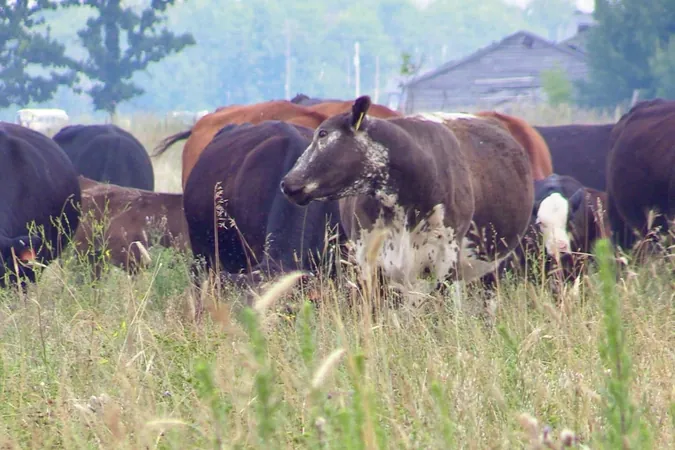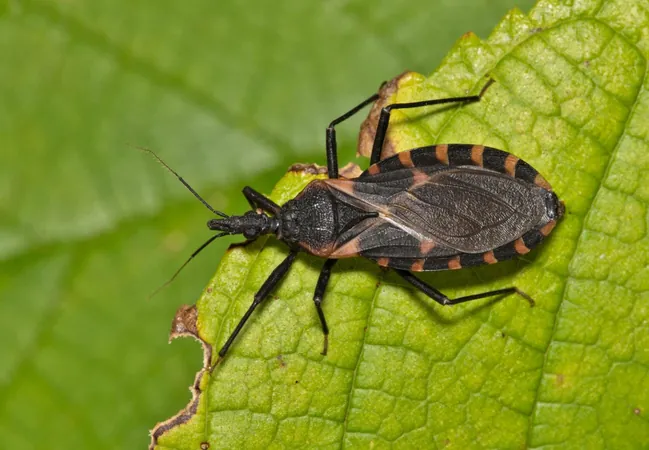
Unlocking Farm Profitability: The Ultimate Guide to Animal Health Management
2025-09-09
Author: Sophie
Taking Control of Animal Health: A Game-Changer for Farmers
Balancing animal health with profitability on a farm can feel like navigating a minefield. But fear not! By adopting a proactive approach to animal care, you can significantly cut down on veterinary costs while ensuring your livestock thrives. According to Dr. Rob Swackhammer from Upper Grand Veterinary Services, implementing solid health protocols can boost the welfare of your animals and keep those vet bills in check.
8 Essential Strategies for Animal Health Management
Here’s how you can take charge of your animals' health and safeguard your farm's future!
1. Optimize Animal Nutrition
The foundation of good animal health starts with a nutrient-rich diet. Consult a nutritionist to design feed rations that not only keep your livestock healthy but also align with your production goals.
2. Vaccination and Deworming Programs
Investing in regular vaccination and deworming programs pays dividends. A well-structured program enhances animal welfare, boosts productivity, and shields farm workers from zoonotic diseases.
3. Upgrade Handling Facilities
Proper facilities are crucial for effective animal care. Dr. Swackhammer emphasizes that efficient animal handling setups reduce stress for both livestock and workers. Don’t break the bank; focus on functional solutions that work for you.
4. Stock an Emergency Veterinary Kit
Equip your farm with a livestock first aid kit that empowers you to tackle urgent issues until help arrives. Basic tools like thermometers, gloves, and medication can make all the difference.
5. Build Confidence Through Education
Confidence is key! Farmers should take the initiative to learn essential skills, like administering injections, which fortifies their ability to care for their animals effectively.
6. Keep Detailed Records
Good record-keeping is vital for effective diagnosis and treatment. Maintain a log that includes everything from vaccination dates to any previous illnesses. Having this info at your fingertips is invaluable.
7. Enforce Quarantine Measures
Always quarantine newly introduced animals for 2-4 weeks. This reduces the risk of disease spread and lets new arrivals acclimate to their environment without stress.
8. Find a Mentor
Experience speaks volumes! Seek guidance from seasoned fellow farmers or mentors. They can offer practical advice that could save on vet costs while enhancing your herd's health.
Proactive Health Management: Your Path to Success
Being proactive with practical tips—like having medical supplies readily available and establishing a solid vaccination routine—can dramatically improve your herd's health and your farm's bottom line. Dr. Swackhammer reminds us that there’s always room for improvement, regardless of the size of your operation.
So roll up your sleeves and collaborate with your veterinarian to discover how you can take the lead in your farm's animal health management. Your profitability—and your animals—will thank you!









 Brasil (PT)
Brasil (PT)
 Canada (EN)
Canada (EN)
 Chile (ES)
Chile (ES)
 Česko (CS)
Česko (CS)
 대한민국 (KO)
대한민국 (KO)
 España (ES)
España (ES)
 France (FR)
France (FR)
 Hong Kong (EN)
Hong Kong (EN)
 Italia (IT)
Italia (IT)
 日本 (JA)
日本 (JA)
 Magyarország (HU)
Magyarország (HU)
 Norge (NO)
Norge (NO)
 Polska (PL)
Polska (PL)
 Schweiz (DE)
Schweiz (DE)
 Singapore (EN)
Singapore (EN)
 Sverige (SV)
Sverige (SV)
 Suomi (FI)
Suomi (FI)
 Türkiye (TR)
Türkiye (TR)
 الإمارات العربية المتحدة (AR)
الإمارات العربية المتحدة (AR)